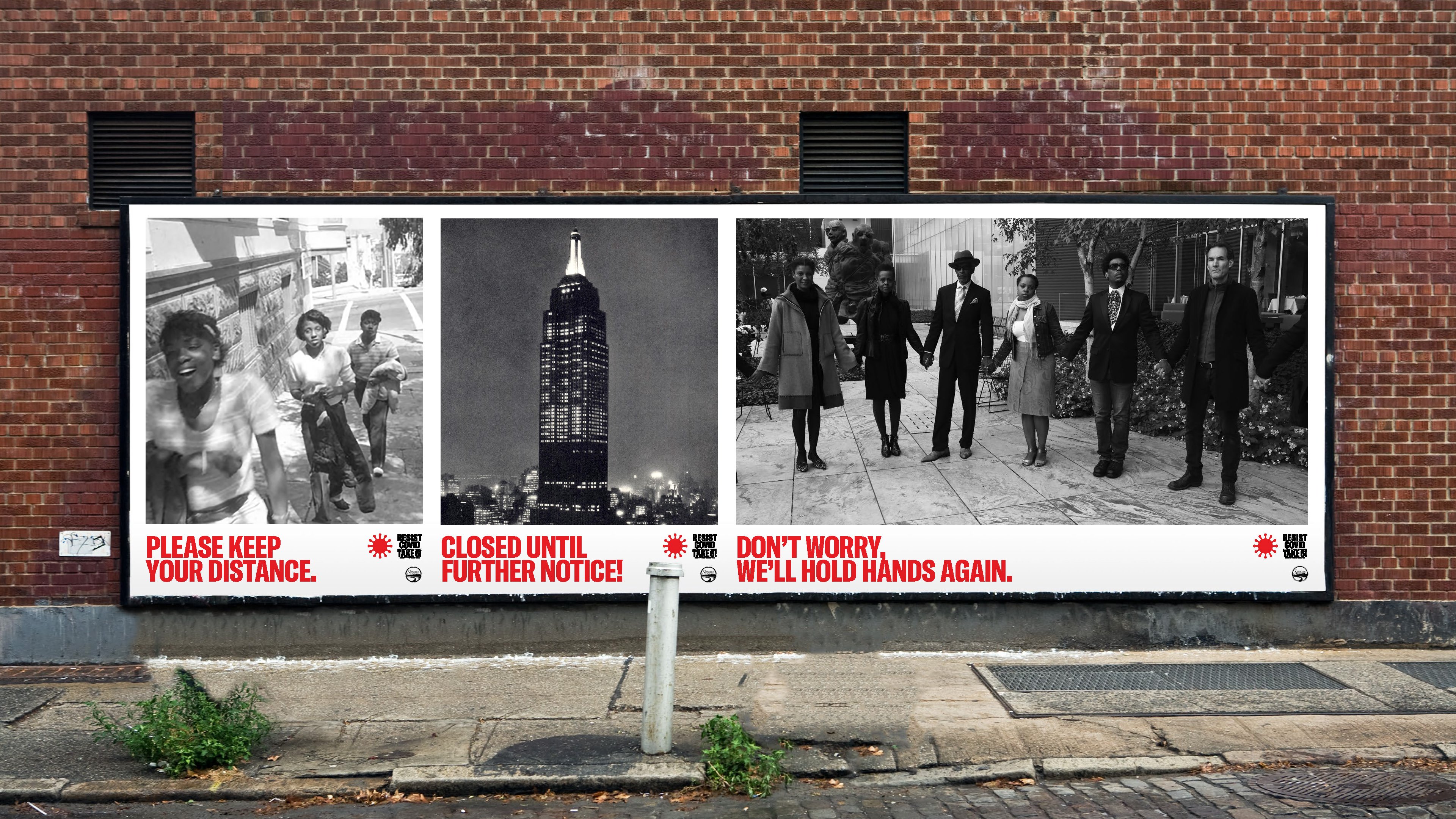
Photographer, filmmaker, and installation artist Carrie Mae Weems is launching a new initiative to draw attention to how the COVID-19 pandemic disproportionately hurts African American, Latino, and Native American communities.
Working with Syracuse University, where she is an artist-in-residence, Weems will unveil a series of billboards, flyers, buttons, and other public objects that promote public health measures throughout the western New York city over the next six months.
“We’ve all been impacted by COVID-19,” Weems said in a statement. “It’s an ecological health crisis of epic proposition—an international disaster. And yet we have indisputable evidence that people of color have been disproportionately impacted. The death toll in these communities is staggering. This fact affords the nation an unprecedented opportunity to address the impact of social and economic inequality in real time. Denial does not solve a problem.”
“I hope to build awareness by asking questions, by providing the simple facts of our extraordinary realities, and embedding them inside powerful imagery,” the artist adds for Artnet News.
The project, titled “Resist COVID Take 6,” which alludes to recommendations that people stay six feet apart from one another, was conceived by Weems at the onset of the pandemic after a conversation with Pierre Loving, who eventually drew up the proposal.
“I thought, ‘How can I use my art and my voice as a way of underscoring what’s possible and bring the general public into a conversation, into heightened awareness of this problem to better the community in which I live?’” Weems said.
Syracuse University, which brought on Weems as its inaugural artist-in-residence in January, will fund the production. The billboards will constitute the first phase of the initiative. In a second phase, items such as buttons, bags, and magnets will be distributed at churches, community centers, food banks, and testing sites.
A RESIST COVID TAKE 6! poster. Courtesy of Carrie Mae Weems.
Weems’s messages be produced in English, Spanish, and Onondaga, the language of the Onondaga Nation, which occupies a territory south of Syracuse. Weems hopes to expand the project outside of the Syracuse area into other cities with large minority populations soon.
“I’m not a policy-maker. I’m not a politician. I’m a citizen concerned about what’s going on in my community,” Weems said. “This coronavirus isn’t going away anytime soon, and neither are the underlying issues affecting people of color that it has made even more apparent.”